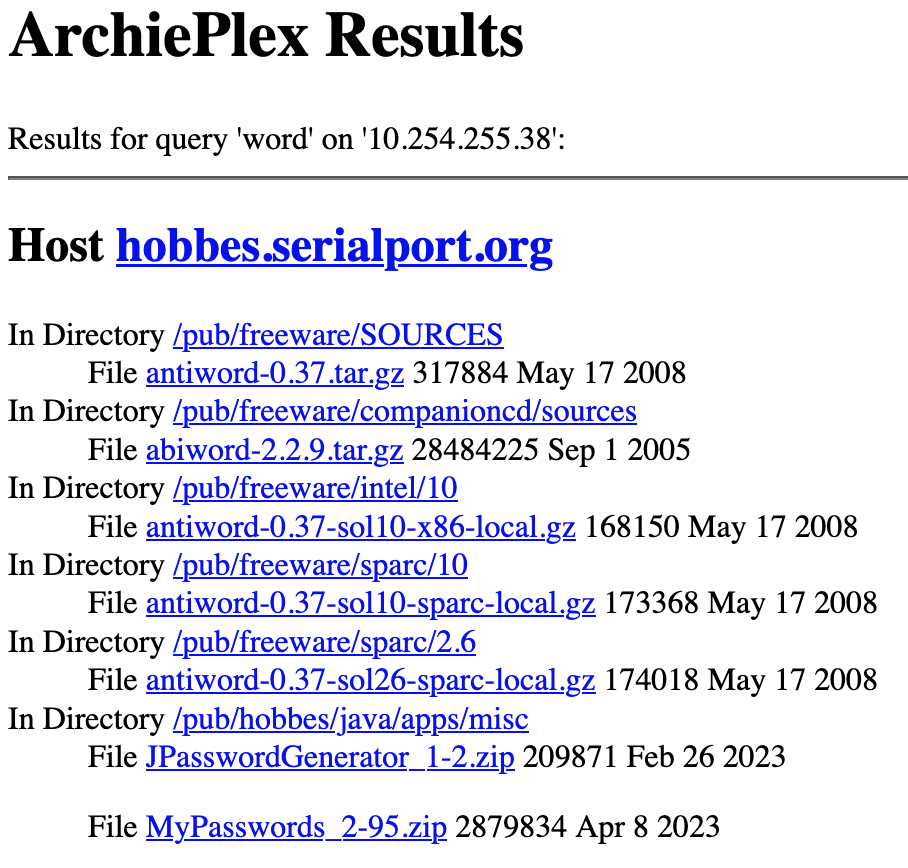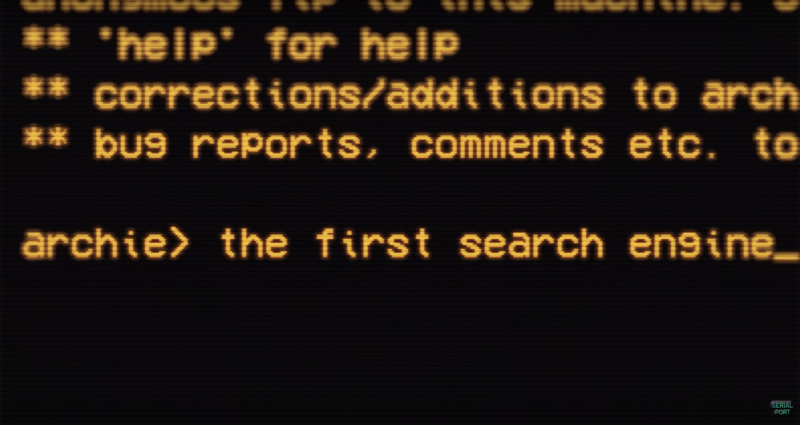It's amazing, and a little sad, to think that something created in 1989 that changed how people used and viewed the then-nascent Internet had nearly vanished by 2024.
Nearly, that is, because the dogged researchers and enthusiasts at The Serial Port channel on YouTube have found what is likely the last existing copy of Archie. Archie, first crafted by Alan Emtage while a student at McGill University in Montreal, Quebec, allowed for the searching of various "anonymous" FTP servers around what was then a very small web of universities, researchers, and government and military nodes. It was groundbreaking; it was the first echo of the "anything, anywhere" Internet to come. And when The Serial Port went looking, it very much did not exist.
While Archie would eventually be supplanted by Gopher, web portals, and search engines, it remains a useful way to index FTP sites and certainly should be preserved. The Serial Port did this, and the road to get there is remarkable and intriguing. You are best off watching the video of their rescue, along with its explanatory preamble. But I present here some notable bits of the tale, perhaps to tempt you into digging further.
The Serial Port team works dozens and dozens of resources to find a working copy of Archie's code, including the Internet Old Farts Club on Facebook. I won't give away the surprising source of their victory, but cheers (or na zdrowie) to the folks who keep old things running for everyone's knowledge.

Emtage, who would later help define the Uniform Resource Locator (URL) standard, gave his blessing to The Serial Port's efforts to recapture and preserve the code of Archie's server. It's a happy ending to a story about archiving the early Internet in a way that's relevant to today, with hopefully more to come.
Listing image by The Serial Port/YouTube



3175x175(CURRENT).thumb.jpg.b05acc060982b36f5891ba728e6d953c.jpg)
Recommended Comments
There are no comments to display.
Join the conversation
You can post now and register later. If you have an account, sign in now to post with your account.
Note: Your post will require moderator approval before it will be visible.